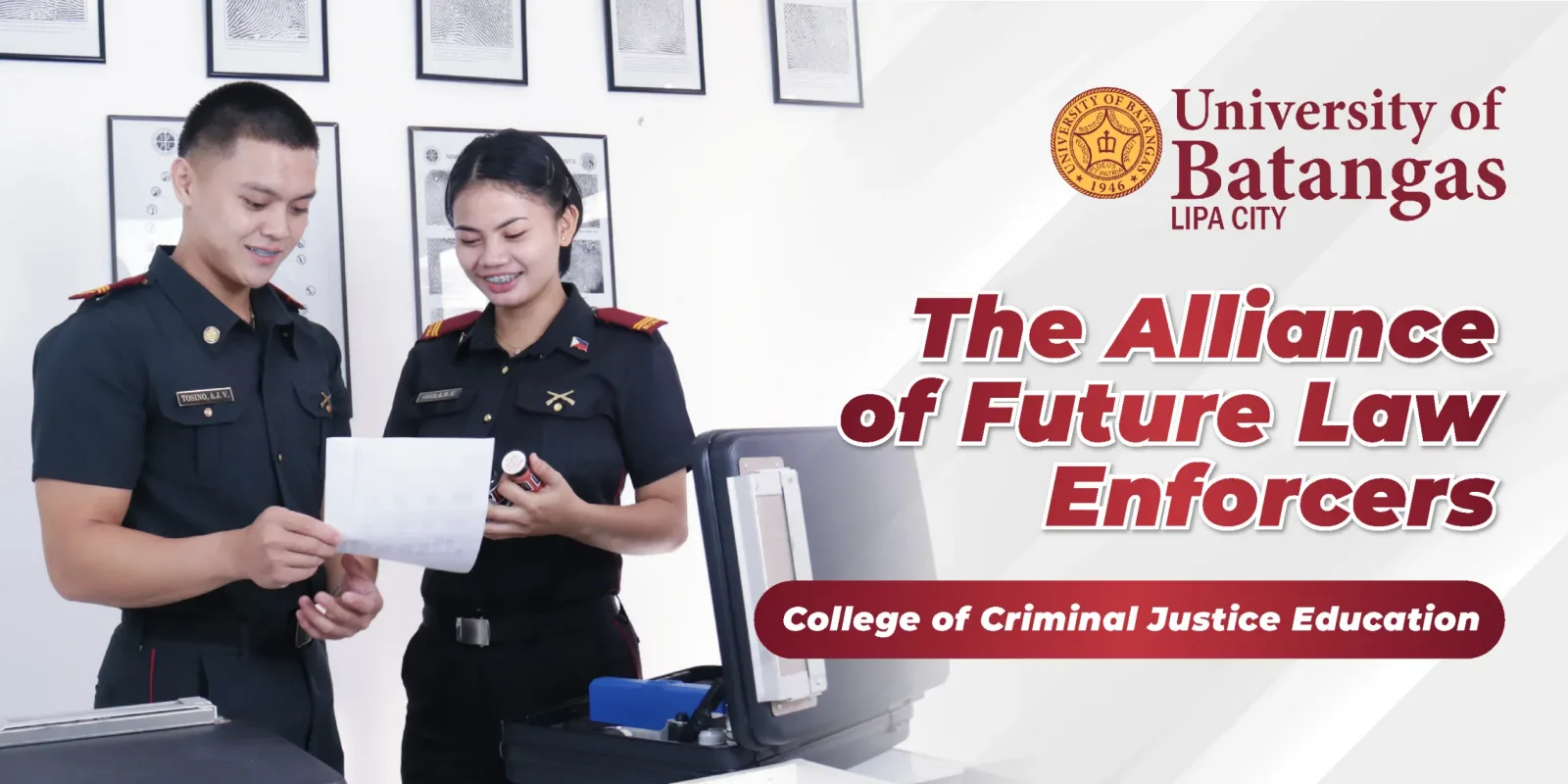It is with great pleasure that we extend a warm welcome to the College of Criminal Justice Education (CCJE) at the University of Batangas Lipa City. Here in our esteemed institution, we proudly stand as “The Alliance of Future Law Enforcers,” committed to shaping individuals who will become the guardians of justice and champions of public safety.
CCJE is not just a place of learning; it is a community with a shared mission. Our tagline, “The Alliance of Future Law Enforcers,” reflects our dedication to cultivating a new generation of professionals in the field of law enforcement.
By choosing the CCJE, you are joining a community that values excellence, collaboration, and a commitment to shaping a safer and more just society. Our students are not just learners; they are integral members of an alliance with the potential to make a real difference in the world.
As you embark on this four-year journey with the Bachelor of Science in Criminology program, you are stepping into an alliance that believes in your potential to make a meaningful impact. We invite you to explore the opportunities, engage with our dedicated faculty, and embrace the learning experiences that await you.

